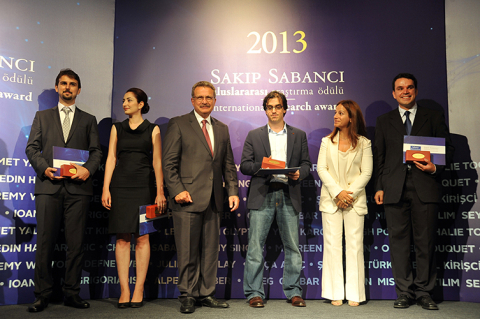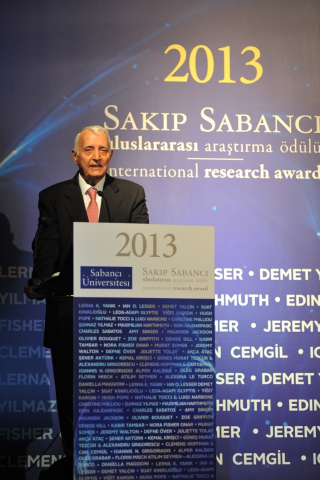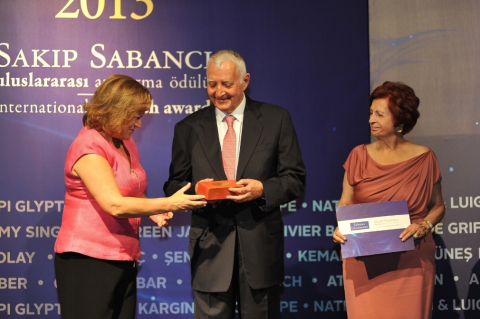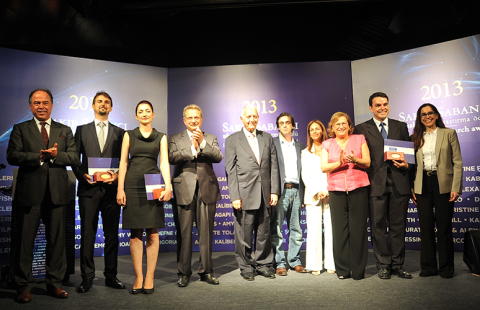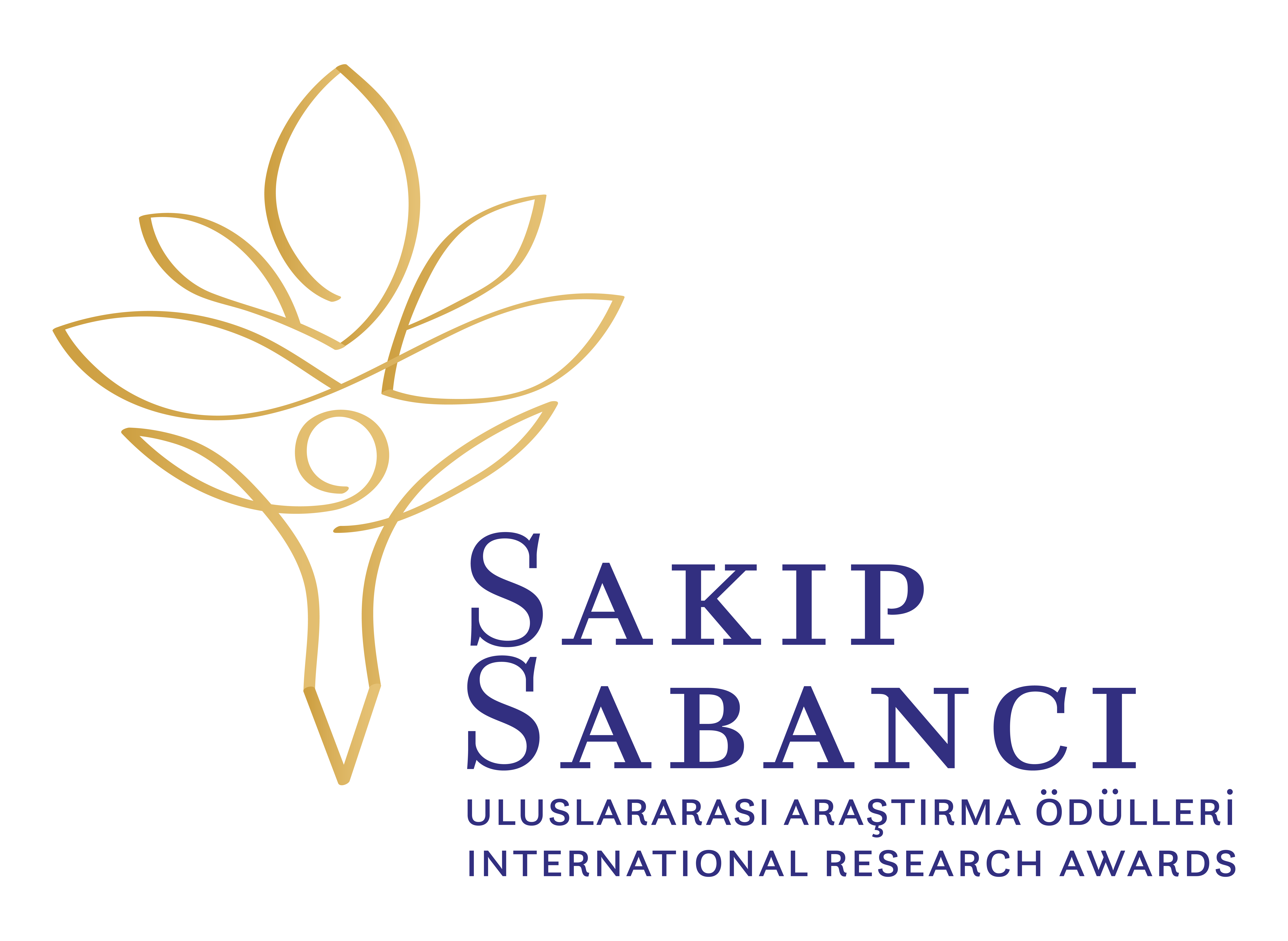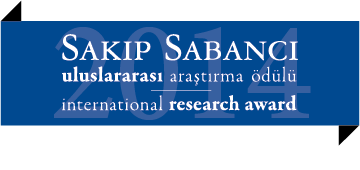
Award Topics
The topic for the 2013 award was “Checks and Balances in a Democracy: Turkey in a Comparative Perspective”. The seventh Sakıp Sabancı International Research Awards were given at a ceremony held on Wednesday, June 26th, at Sabancı University Sakıp Sabancı Museum - the Seed. The ceremony was hosted by Güler Sabancı, Chairman of the Board of Trustees, and President Professor A. Nihat Berker. The winners were Meral Uğur Çınar & Kürşad Çınar with their article '' Building Democracy to Last: the Turkish Experience in Comparative Perspective'', Yunus Sözen with his article ''Paradoxes of Liberal Constitutional Democracy and the Populist Challenge'' and Ioannis Grigoriadis wit his article ''Democratic Transition and the Rising Tide of Majoritarianism: Comparing the Cases of Greece and Turkey''.
Winners
Winners of Research Awards:
Meral Uğur Çınar. The New School Department of Political Science and Sociology in New York, USA.
Kürşat Çınar. Ohio State University, Doctorate in Politics in Columbus, USA.
“Building Democracy to Last: The Turkish Experience in Comparative Perspective”
Ioannis N. Grigoriadis. Bilkent University Political Science and Public Administration Department in Ankara, Turkey. “Democratic Transition and the Rising Tide of Majoritarianism: Comparing the Cases of Greece and Turkey”
Yunus Sözen. Özyeğin University International Relations Department in İstanbul, Turkey. “Paradoxes of Liberal Constitutional Democracy and Populist Challenge”.
Special Jury Award: Ergun Özbudun of the Istanbul Şehir University Law School for his publications on prestigious international platforms and his comparative studies on the Turkish case.
Jury
Professor Ayşe Kadıoğlu: Sabancı University
Professor Fuat Keyman: Sabancı University / İstanbul Politikalar Merkezi Direktörü
Assistant Professor Aslı Bali: University of California Los Angeles
Professor Çağlar Keyder: State University of New York ve Boğaziçi University
Emeritus Professor Deniz Kandiyoti: University of London
Elaine Papoulias: Harvard University
Professor Jenny White: Boston University
Winning Articles
This year’s theme of the awards was “Checks and Balances in a Democracy: Turkey in a Comparative Perspective” and the winners:
Meral Uğur Çınar. The New School Department of Political Science and Sociology in New York, USA. Kürşat Çınar. Ohio State University, Doctorate in Politics in Columbus, USA. “Building Democracy to Last: The Turkish Experience in Comparative Perspective”
Ioannis N. Grigoriadis. Bilkent University Political Science and Public Administration Department in Ankara, Turkey. “Democratic Transition and the Rising Tide of Majoritarianism: Comparing the Cases of Greece and Turkey”
Yunus Sözen. Özyeğin University International Relations Department in İstanbul, Turkey. “Paradoxes of Liberal Constitutional Democracy and Populist Challenge”.
Please do not cite or reproduce without permission of the author.
Keynote Speeches
Ergun Özbudun, Faculty of Law, Istanbul Şehir University:
“Democracy is a regime of checks and balances”
Professor Ergun Özbudun, winner of the Special Jury Award, began by saying that the award was one of the proudest achievements of his long career. Ergun Özbudun said, “Checks and balances is a very wise choice as the theme this year considering the current situation in Turkey. Democracy is a regime of checks and balances. The motive behind the constitutional movement is to limit the power of the government and protect the rights of the individual. Separation of powers is essential in achieving this, and the system of checks and balances has been devised and developed as a vital part of all democratic regimes. It is not possible to conceive a democracy without checks and balances.”
“The higher democratic standards are in a country, the better will be the quality and international recognition of work in this area.”
Ergun Özbudun said, “Looking back 50 years, I see that Turkey has gained great distance both in quality and quantity. In the early 1960s, the number of professors and researchers in either social science or political science could be counted on two hands. Today, there are hundreds of scholars in both disciplines, and the increase is not limited to numbers.The studies of Turkish researchers, political scientists and social scientists receive increasing recognition and coverage in international publications. It must be kept in mind that sciences in general, social sciences in particular, and specifically subjects like constitutional law and Turkish politics are closely tied to the level of freedom of thought and the quality of democracy in the country. The higher democratic standards are in a country, the better will be the quality and international recognition of work in this area.”
Photo
